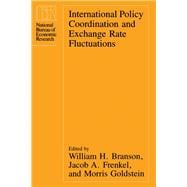
Note: Supplemental materials are not guaranteed with Rental or Used book purchases.
Purchase Benefits
What is included with this book?
| Preface | |
| Introduction | |
| The Rationale for, and Effects of, International Economic Policy Coordination | |
| Comment | |
| Comment | |
| The Coordination of Macroeconomic Policies | |
| Comment | |
| Comment | |
| Obstacles to Coordination, and a Consideration of Two Proposals to Overcome Them: International Nominal Targeting (INT) and the Hosomi Fund | |
| Comment | |
| Comment | |
| Equilibrium Exchange Rates | |
| Comment | |
| Comment | |
| The Effectiveness of Foreign-Exchange Intervention: Recent Experience, 1985-1988 | |
| Comment | |
| Comment | |
| Comment | |
| Can the European Monetary System be Copied Outside Europe? Lessons from Ten Years of Monetary Policy Coordination in Europe | |
| Comment | |
| Comment | |
| The Case for International Coordination of Financial Policy | |
| Comment | |
| Multinational Corporations, Exchange Rates, and Direct Investment | |
| Comment | |
| Comment | |
| Adequacy of International Transactions and Position Data for Policy Coordination | |
| List of Contributors | |
| Author Index | |
| Subject Index | |
| Table of Contents provided by Publisher. All Rights Reserved. |
The New copy of this book will include any supplemental materials advertised. Please check the title of the book to determine if it should include any access cards, study guides, lab manuals, CDs, etc.
The Used, Rental and eBook copies of this book are not guaranteed to include any supplemental materials. Typically, only the book itself is included. This is true even if the title states it includes any access cards, study guides, lab manuals, CDs, etc.